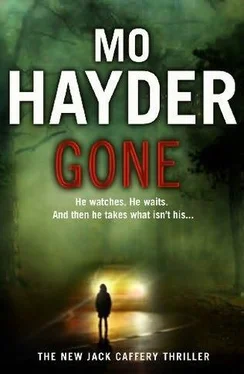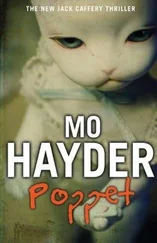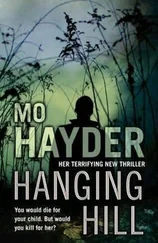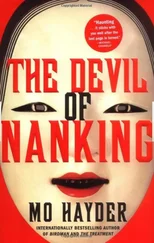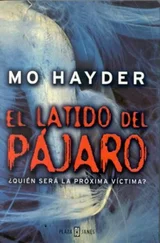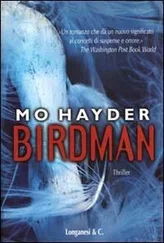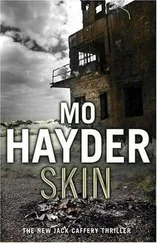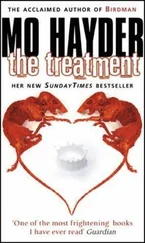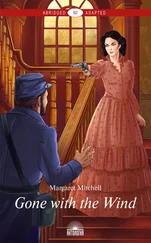The footsteps stopped a third of a mile away at the far end of the next field and there, tucked secretly in the hedgerow, was the usual assortment of supplies covered with polythene: tinned food, a cooking pot, a flagon of scrumpy. Caffery tucked in the bedroll and the plate and secured the polythene around everything. When he straightened to leave he noticed something: about a yard along the hedgerow, tight under the hawthorn, a tiny patch of ground had been disturbed. When he crouched next to it and gently moved away the earth he found the bruised, tender tip of a crocus bulb.
Every person in the world had habits – Caffery thought later that morning as he pulled into a pub car park six miles away in Gloucestershire – from the obsessive compulsive who had to count every pea he ate, every light switch he touched, down to the drifter who seemed to have no aim and no direction yet could always find a good place to make camp and sleep. Everyone moved in patterns to some degree or another. Those patterns might be all but invisible, even to the persons themselves, but they were there, nonetheless. The Walking Man’s patterns, the places he stopped, the places he planted crocuses, were slowly revealing themselves to Caffery. And the jacker? Caffery turned off the engine and opened the door, looked at the police vehicles: the forensics van, the four Sprinters belonging to the search units. Well, the jacker had patterns too. And they’d become clear. Given time.
‘Sir?’ The police search adviser – the POLSA – a small guy with neat John Lennon glasses, appeared next to the car. ‘A word?’
Caffery followed him across the car park and through a low stone doorway into a room the landlord had set aside for the police to use. The games room, it smelt of stale beer and bleach. The pool table had been pushed to one side and replaced with a row of chairs; the dartboard was invisible behind a flip-chart stand where a series of photographs had been mounted.
‘The briefing’s in ten – and it’s going to be a nightmare. This area the soil man’s given us – it’s massive.’
Every forensic test known to man had been thrown at the Bradleys’ Yaris. There were signs of a struggle in the back seat – the upholstery had been torn and there were strands of Martha’s pale blonde hair in a window seal, but the car hadn’t yielded any fingerprints that didn’t match a member of the Bradley family. The latex gloves, of course. No blood either and no semen. But there had been soil lodged in the treads of the tyres and an expert in forensic soil analysis had spent the night analysing the samples. He had put it together with how many miles the Bradleys estimated had gone on the clock, and decided there was only one place a car could have picked up a soil signature so unique: before the jacker had dumped it in Wiltshire he’d stopped somewhere out here in the Cotswolds, somewhere within a radius of about ten kilometres from this pub. Half the police force, it seemed, from the vehicles in the car park, had descended on the area.
‘We knew it was going to be a wide net,’ said Caffery. ‘The soil man didn’t have much time – we paid him to stay up all night.’
‘With the area he gave me, I’ve identified about a hundred and fifty buildings that should be searched.’
‘Shit. We’d need about six units to do that properly.’
‘Gloucestershire’s offering manpower. We’re on their patch.’
‘An interforce operation? I don’t even know how you do that. I’ve never done a memorandum of understanding in my life, it’s a logistical nightmare. We need to narrow it down.’
‘That is narrowed down. Those hundred and fifty are just the buildings you could hide a car in. About thirty per cent of them are garages, mostly connected to private homes, so they’re easy, but there are others you need Land Registry searches even to find out who owns them. And this is the Cotswolds, area of outstanding natural beauty. Half the places are second homes: Russians running some prostitute ring in London want to own a house next to Prince Charles but never bother to visit. It’s either absentee rich bastards or bolshy farmers with single-bore shotguns. Think Tony Martin.’ He tapped the back of his head. ‘A round in the skull as you’re running away. Welcome to rural bliss. Still, on a bright note, it rained yesterday. Perfect weather for it. If he parked out here the tracks will still be visible.’
Caffery wandered over to look at the photos on the board. A series of tracks. Made last night in the lab using casts of the Yaris’s tyres.
‘There was something else in the soil, they told me. Wood chip?’
‘Yes. So maybe a timber yard. Stainless-steel swarf, too, and flecks of titanium. The titanium’s too small to say what process it came from so it’s probably not relevant at this point, but the stainless steel means some kind of engineering plant. I’ve outlined seven in the area. And a couple of timber yards. I’m going to divvy up my team – half of them knocking on the buildings, the other half trying to find those tyre tracks.’
Caffery nodded. Tried to hide how despondent he felt. A radius of ten kilometres. A hundred and fifty buildings and Christ only knew how many driveways and lanes. It was going to be searching for a needle in a haystack. Even with extra units from Gloucestershire, with the warrants and the paperwork it was going to take for ever. And – the jacker’s words came back to him: It’s started now, hasn’t it, and it ain’t going to stop just sudden – time was the one thing they didn’t have.
Flea’s unit spent only 20 per cent of its time diving. During the rest they did other specialist operations, confined space and rope-access searches. On occasion they did general support-group work, including wide-range searches like this one in the Cotswolds.
They’d sat through the POLSA’s briefing in the smelly games room. Her team was handed the job of hunting for tyre tracks. He’d given them a map with about six miles of road outlined in red and pointed them in the general direction, but when she came out of the briefing, got into the Sprinter van with the team and pulled out of the car park, instead of turning left to head out to the area, she turned right.
‘Where are we going?’ Wellard, her second-in-command, was sitting behind her. He leaned forward in the seat. ‘It’s the other way.’
She found a small passing space in the narrow lane, pulled the van over and cut the engine. She hooked her elbow over the back of the seat and gave the six men a long, serious look.
‘What?’ said one. ‘What is it?’
‘What is it?’ she echoed. ‘What is it? We’ve just sat through a ten-minute briefing. Short. Not long enough for anyone to fall asleep. Hurray. There’s a little girl out there, eleven years old, and we’ve got a chance to find her. Now, there was a time when every one of you, to a man, would have come out of a briefing like that at a run. I’d have had to put muzzles on you all.’
They stared back at her, mouths half open, eyes dull and bovine. What had happened to them? Six months ago, when she’d last given it a thought, they’d been healthy young men, every one of them committed to and excited about his job. Now they had nothing: no spark, no enthusiasm. And one or two even looked like they were putting on weight. Getting flabby. How had this happened under her nose? How the hell had she not noticed?
‘Look at you now. Not a flicker. That.’ She held up her hand, rigid, horizontal. ‘That is your brain-wave pattern. Flat . Not a spike. What the hell happened, guys?’
No one answered. One or two dropped their eyes. Wellard folded his arms and found something to gaze at out of the window. He pursed his lips as if he was going to—
Читать дальше
